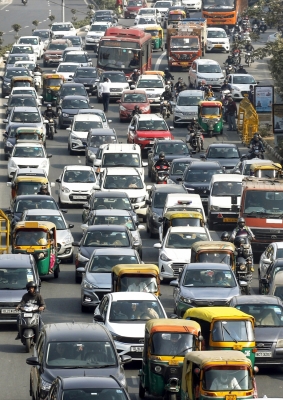New Delhi, May 12 (IANS) The Transport Department of Delhi government and the University of Chicago Trust (UC Trust) have signed a memorandum of understanding (MoU) to facilitate an evidence-based approach to reducing vehicular pollution in the national capital.
The strategic partnership will enable the establishment of a research unit that will design innovative policy interventions for pilot and evaluation. The MoU is a step ahead in augmenting the Transport Department’s ongoing programs to reduce air pollution in Delhi.
Highlighting the aim of this collaboration, Ashish Kundra, Principal Secretary, said, “We are excited to work closely with the researchers from the Energy Policy Institute at the University of Chicago Trust in India (EPIC India) and incorporate the application of research and policy expertise with the foresight to generate new policy initiatives and solutions, alongside a rigorous evaluation of the transport department’s existing programs.”
Under this partnership, the researchers from EPIC India will also assist the transport department to leverage insights from advanced statistics, machine learning, artificial intelligence, data visualization, use of satellite data, and econometrics, among others, to improve the effectiveness of its existing programs, and design changes to improve them.
Apart from driving research that is evidence-based for policy innovation, evaluation, and capacity building, the cooperation will also facilitate knowledge exchange and high-quality data analysis.
Sharing his thoughts about the alliance, Michael Greenstone, Milton Friedman Professor in Economics and Director of the Energy Policy Institute at the University of Chicago, said, “Delhi’s challenges with air pollution attract the spotlight. But what also needs to be highlighted is the Delhi government’s desire to test and develop inventive solutions.
Additionally, this partnership will also enable researchers from the University of Chicago to work closely with government officials to enable knowledge exchange through seminars, workshops, or training sessions and carry out policy evaluation.

